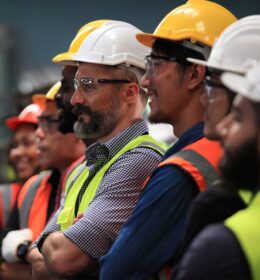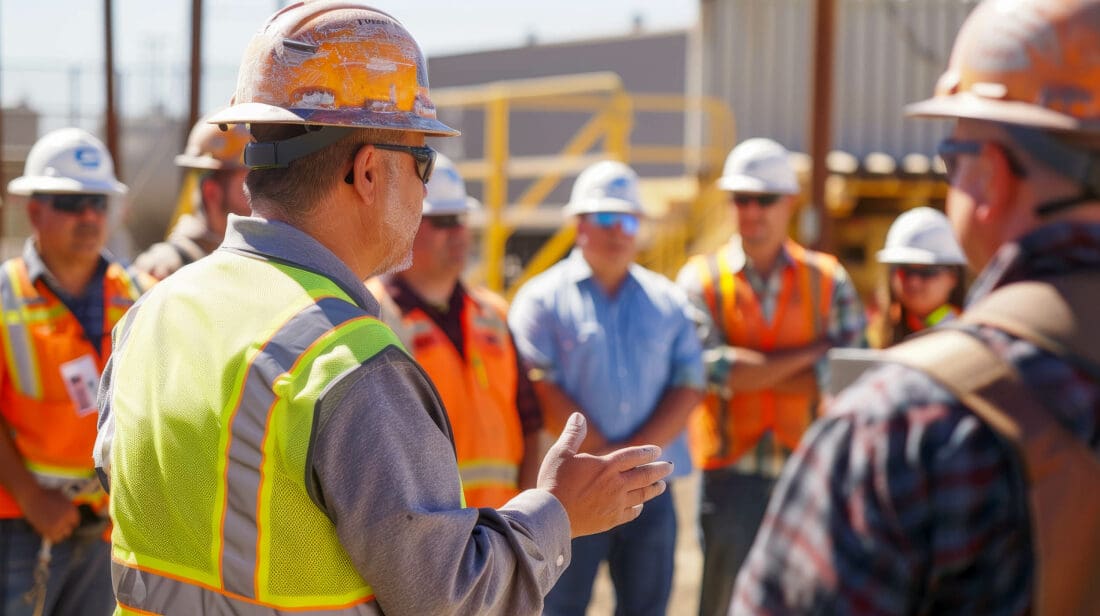How to Assess Subcontractor Qualifications
The companies a contractor chooses to work with can have a huge impact on their success. Choose wisely.
Here’s something we at Fleming Construction Group know all too well: General construction contractors are only as good as the subcontractors they works with.
The roofers, plumbers, and electricians a contractor brings in can make or break a construction project. They can also make or break the general contractor’s reputation—and bottom line. It’s incumbent, therefore, on any general contractor to thoroughly vet their subcontractors and only work with those that can enhance the project without causing problems.
Here are some areas to look at When considering a subcontractor’s qualifications

Licenses and Certifications
License requirements for construction contractors vary from state to state, and even from municipality to municipality. But to be considered for any job, subcontractors should at least have the normal licenses applicable to their trade. This will provide some assurance of a basic familiarity with the trade’s requirements. More importantly, it carries a set of legal and ethical obligations that the subcontractor is responsible to uphold. If a subcontractor’s license has expired or been suspended, that should be a deal breaker. Likewise, all employees should be adequately trained and certified in the field in which they work.
Insurance
Responsible general contractors carry workers compensation insurance and liability coverage among their insurance protection. But those policies may not cover the activities of subcontractors. It’s important that subcontractors carry their own insurance—and be able to provide proof of coverage. An accident, injury, or faulty workmanship incurred by a subcontractor can cause legal and financial nightmares for the general contractor. Requiring adequate coverage among all subcontractors is absolutely essential.


References and Recommendations
Subcontractors may be expected to extol their own excellence. But what do others have to say? Recommendations from those who have actually worked with a subcontractor are the most valuable source of real information about them. It’s okay to ask for referrals from any company being considered as a subcontractor.
Experience and Expertise
How long has a company been in business? What types of projects do they specialize in? What is the experience level of their workforce? These are important questions to ask. Many subcontractors “go on their own” after working for a period of time with other companies. That too should be considered in assessing a company’s experience level.


Financial Stability
What happens if a subcontractor you’ve hired is simply unable to complete its work because of inadequate funding? Your project may come to a screeching halt while you search for another company. Running any business requires adequate capital. In fact, the reason many small businesses fail is undercapitalization. When cash flow problems arise, some businesses may resort to “robbing Peter to pay Paul”—asking for advances or deposits just to keep functioning. In the worst cases, the house of cards collapses, and the company disappears—leaving you, the general contractor holding the bag.
Safety Record
A good subcontractor will be proud of its safety record, and therefore ready to provide a full report. That report should document any OSHA recordable incidents and time lost due to accidents. Another important factor is the company’s experience modification rating. This is a metric used by insurance companies to calculate the cost of any past worker’s compensation claims and estimate the cost of probable future claims.


Quality Workmanship
A subcontractor’s resume may reveal how many projects they’ve completed—but give no hint as to the quality of their workmanship. Having an expert examine that work can reveal the level of skill and competence they exhibit.
Communication and Responsiveness
One of the most important factors in a successful relationship is good communication. A large-scale commercial project is complex, requiring the coordination of multiple trades within a limited time frame. Finding out too late that a job is behind schedule or requires change orders can be devastating. Your subcontractor should be available at all times to discuss the progress of their work and any impediments they may be experiencing.


Demonstrated Capability on Job Size and Scope
Few companies are proficient at all types of jobs. You should make sure any subcontractors you hire are comfortable and competent with the size and scope of your project.
Availability
A subcontractor may be well-qualified and capable of taking on the job you envision—but may be otherwise engaged. It’s wise to inquire early on about a subcontractor’s availability during the time frame you require.


Compatibility in Collaboration
As the general contractor, you’ll have to work with the subcontractors you hire—possibly for a long period of time. It’s worth assessing whether their methods, practices, and temperament are compatible with yours. That involves areas that may be somewhat intangible—but are still important to consider.
Labor Affiliations
Does the company use only union-affiliated workers? This will impact the cost of their work as well as the conditions under which they can work. It should also ensure a certain level of competency and expertise in their workforce. Many companies are tempted to cut costs by using illegal immigrant labor—which also implies certain risks and loss of accountability.

Fleming Construction Group – Data Center Construction Experts
The Fleming Construction Group is an experienced data center construction partner with more than 5 million square feet of constructed space of buildings ranging from 10 MW up to 130 MW, and more than 1.2 million square feet under construction.


